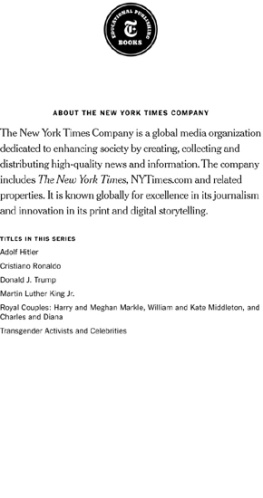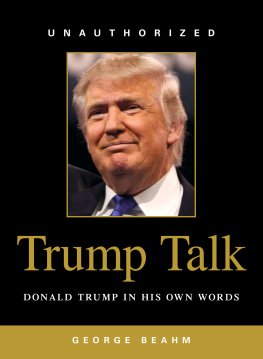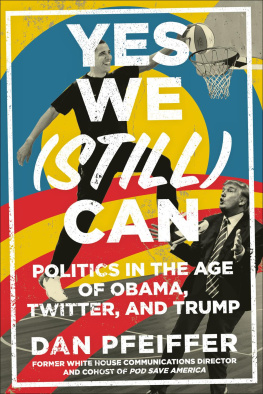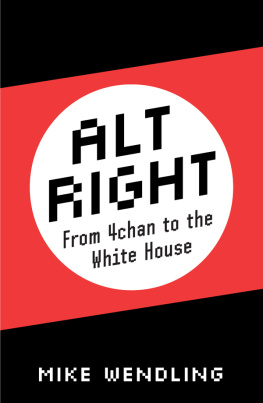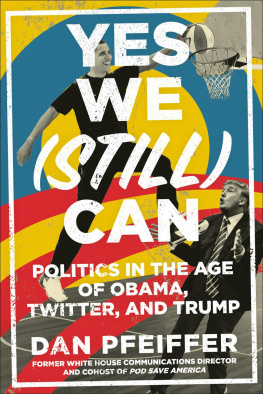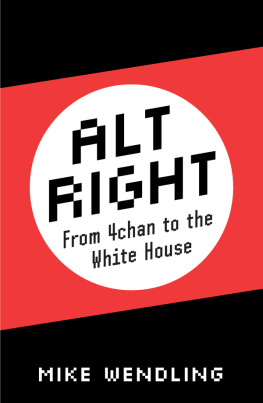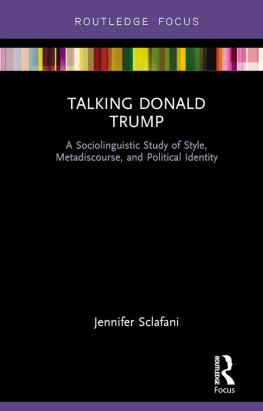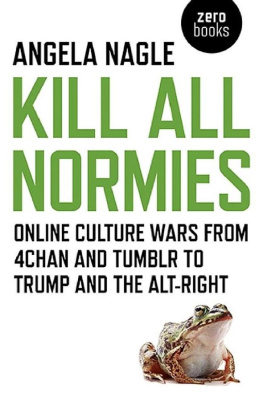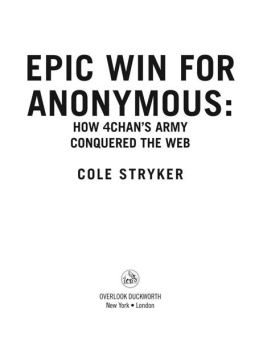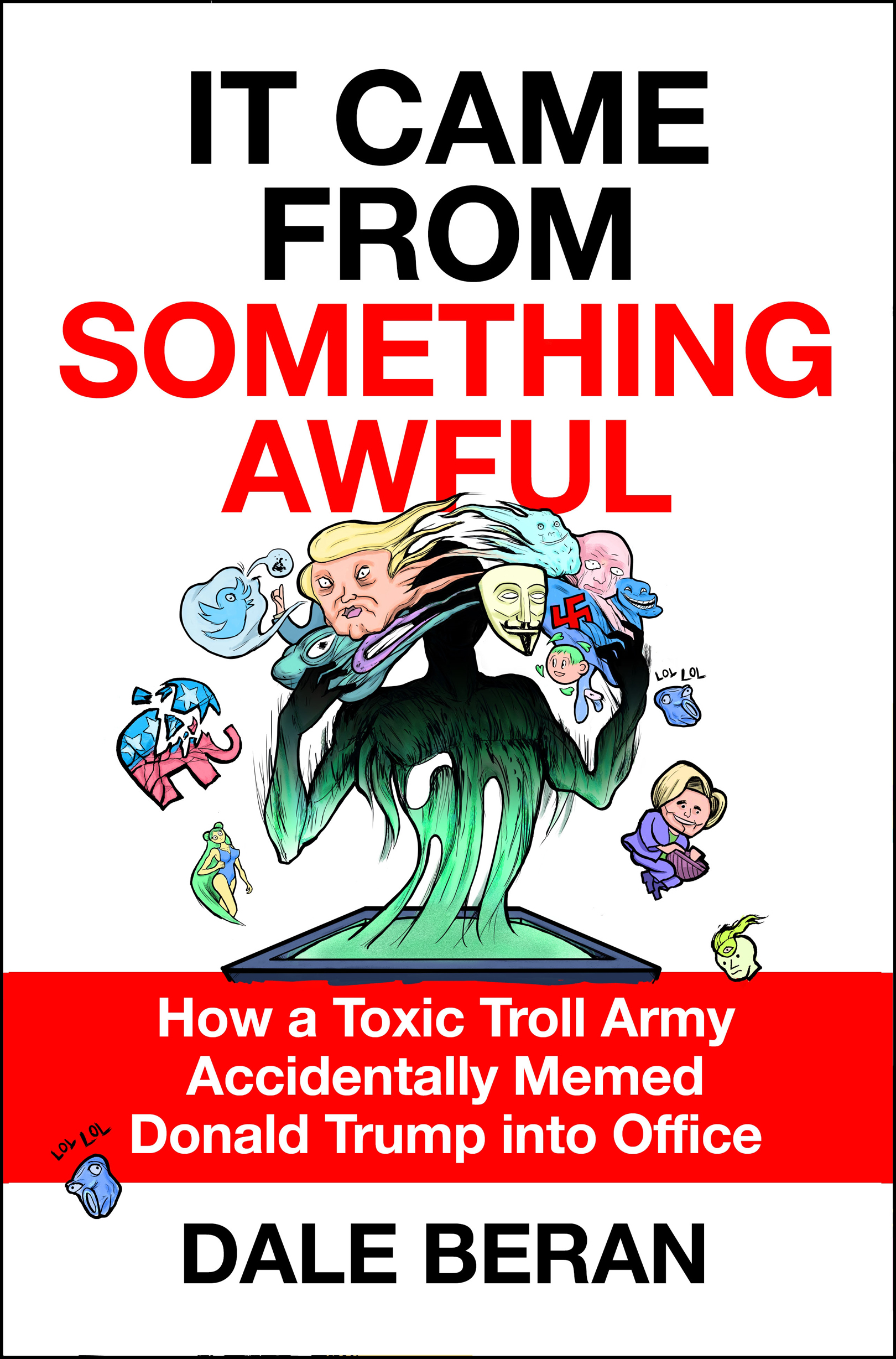The author and publisher have provided this e-book to you for your personal use only. You may not make this e-book publicly available in any way. Copyright infringement is against the law. If you believe the copy of this e-book you are reading infringes on the authors copyright, please notify the publisher at: us.macmillanusa.com/piracy.
O God, I could be bounded in a nutshell and count myself a king of infinite space, were it not that I have bad dreams.
On a warm summer day some thirteen years ago, I found myself in the frigid air of Baltimores convention center attending Otakon, a gathering of otaku, super-fans of Japanese media, namely anime and manga.
I didnt particularly like anime. And I felt I was a little too old for the event. I had attended a few times when I was in high school in the late 90s. Back then it had been held in a set of hotel conference rooms darkened to play obscure animation taped off Japanese TV. But in recent years, the crowds had grown big enough to require the citys largest venue. And the event had evolved too into an elaborate festival where otherwise isolated suburban kids came to bond over their favorite TV shows.
The convention was held next to the citys famous Inner Harbor, an outdoor shopping mall with a tall clipper ship drifting in the black water beside a dreary set of chain restaurants. And the meeting hall, like the mall, was brutalist and modern, made of hard right angles, truncated geometric shapes, and whirling, structural triangles, which teens employed as a science-fiction backdrop for their costumed photo shoots.
I was there with an old high school friend. We had both just graduated from college and wanted to be professional artists. I was particularly interested in becoming a writer, though I had no idea how to do it. So we had started making a short online comic, mostly about ourselves, called A Lesson Is Learned But the Damage Is Irreversible. To our surprise, people were reading it. And we had gone down to Otakon to hand out flyers to promote it.
Besides the webcomic, it hadnt been all that great of a year. Just after I graduated, my father had died suddenly of a heart attack. I had spent the previous months winding up the complicated affairs of his finances and psychiatry practice, badly. When the dust settled, there wasnt really an inheritance when split among my siblings, more of a series of minor tax problems. As a child, I had willfully shut myself up in the abstract realm of books. And so the transition out of childhood, into an adult realm I didnt quite understand, full of stultifying tasks and bureaucratic forms, was painful. It mingled with the absence of my father, who had been both a source of whimsy in my life and, somewhat contradictorily, intellectual rigor.
For this reason, entering into the cool, safe bubble of Otakon, where adolescents attempted to commune with the comforting kids fantasy on the other side of the screen felt slightly unsettling to me, though I couldnt put my finger on why.
And at a certain point, wandering the triangle-shaped halls lined with wooden ships trapped in bottles handing out flyers for my webcomic to teens dressed as rubber monsters, things started to get weird.
Not for me, thenI hardly knew what I was seeing then. But for all of us, now.
Years later, I realized I had become an indifferent witness to a turning point in history, a vast secret hinge upon which world events would swing.
What did I see? Well, more of the same: kids in costumes. At the front of one room, there was a fifteen-year-old boy with a sharp chin, golden locks, and a baseball cap, going through a PowerPoint presentation that was a mixture of website statistics and lewd jokes mocking various types of cartoon pornography.
These included many fan-drawn images of the boy himself depicted as a curvaceous pink cartoon cat-girl wearing white panties. As the increasingly silly Photoshopped drawings slid by, the raucous crowd shouted words of encouragement, gearing up for the late-night techno dance party that would follow.
Despite all the adulation, the boy seemed slightly ill at ease. The cap was slung a little too low, as if to disguise his eyes. And he let his friends at the table do most of the talking.
This was one of the first meetings of a now-infamous online message board, 4chan.org. The boy in the cap was the sites founder, Christopher moot Poole. In October 2003, bored and in need of porno, he had programmed 4chan on a whim to trade pictures of anime girls with his friends, but soon discovered thousands, and eventually millions, of other people wanted to use it.
It seems ridiculous to say the site was important. But even more ridiculously, its importance is already documented in the history books. In Alt-America, David Neiwert wrote that the Nazi-worshipping alt-right began with 4chan, with people talking online about Japanese anime.
Few of these books, including Neiwerts, offer an explanation for how this could have possibly happened. How we got from anime otaku to the anime Nazis of 2016 and onward. How all of this resulted in internet weirdos marching with tiki torches and similar fantasy-themed costumes in Charlottesville in 2017.
Of course, the kids in that room werent Nazis. Far from it. The last thing they wanted to discuss was politics. And at that moment, I certainly didnt feel as though I was present for some great turning point in history. In fact, it seemed like I was confronting yet another moment of anti-history as the vast landscape of the American suburban nowhereland was imported into the convention center, a place that, in its expanses of smooth, clean carpeting, model ships, and big tumbling geometric shapes, felt a little like an infinite kids rec room. The teens werent trying to make a mark on the world; they were trying to escape from it by pantomiming discarded scraps of fiction.
However, looking back, it all reads like some crazy premonition.
As the microphone was passed from rubber dinosaur to trench-coat mafia kid to sea witch to ask their curly-headed leader questions, the teens/monsters kept debating and joking about things called memes and trolls.
In the mid-2000s, these terms were meaningless to anyone outside that room. But later they broke out of it and saturated every inch of the world.
And stranger still, from 2016 onward memes and trolls became central concepts that obsessed political commentators. Almost overnight, the terms invaded the domain of world leaders and redefined the contests between them. Now there are Russian trolls, Facebook trolls, and of course, the original 4chan trolls all jiggling through the ether.
Back then, I was surprised to find that I knew what these terms meant. Before I had encountered 4chan at Otakon, the site constantly popped up in my webcomics referral logs (the data that shows where people came from when they visit your site).
When 4chan began it wasnt all that different from other online message boards; it was a place to post content and talk to people on the internet. At the time, it imported a few innovations from Japanese sites, which accounted for some of its popularity. It was easy to post images. And following a Japanese custom, it didnt require the user to sign up for an account. Anyone could post under a default name, which eventually became the name of all 4chan users, Anonymous.


